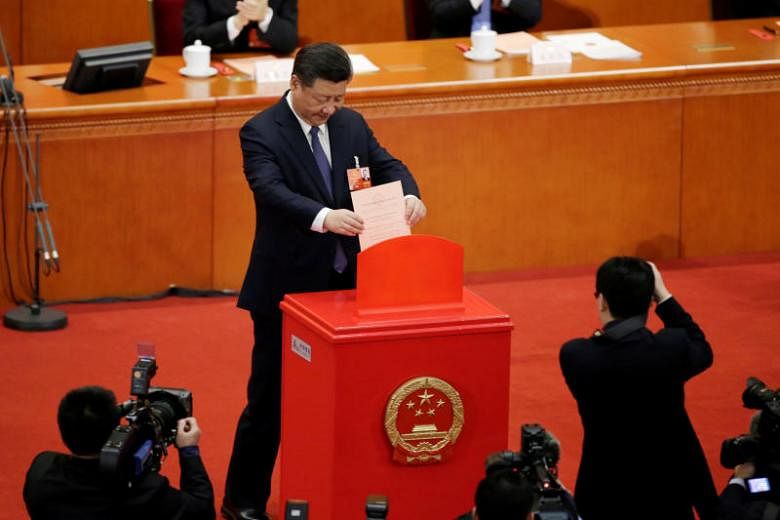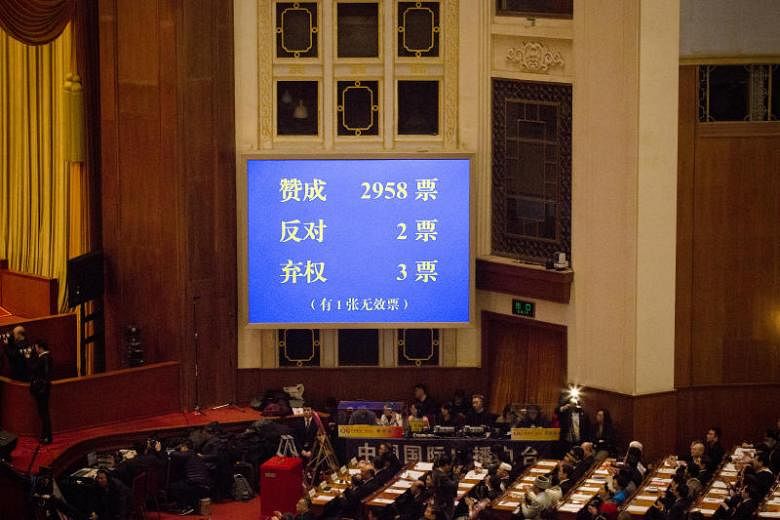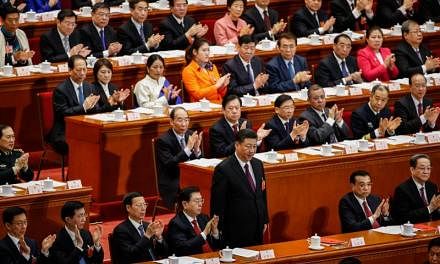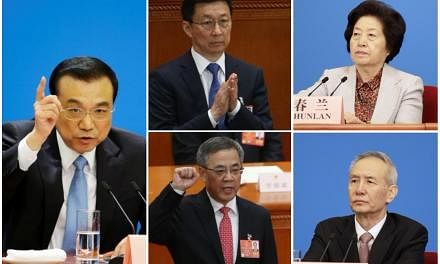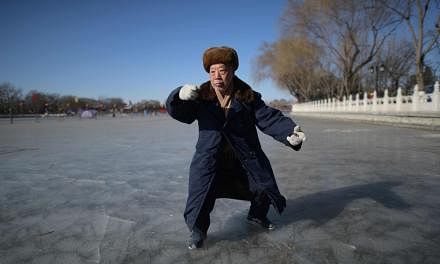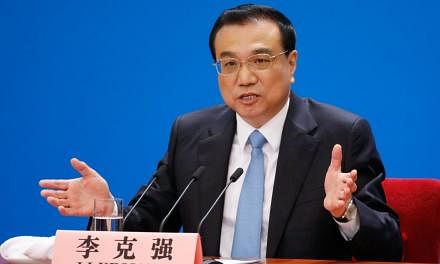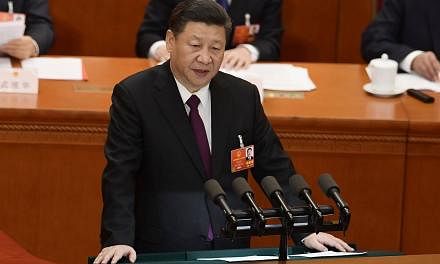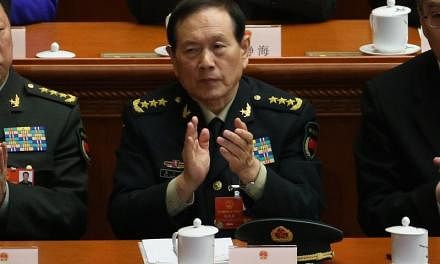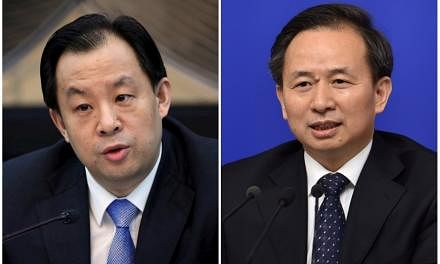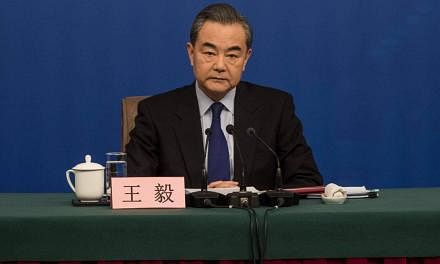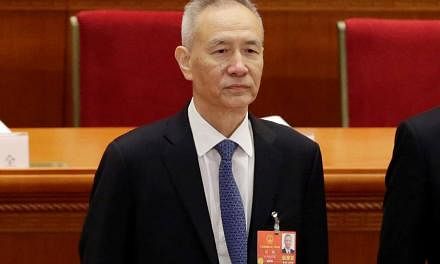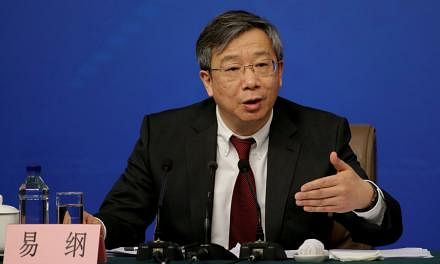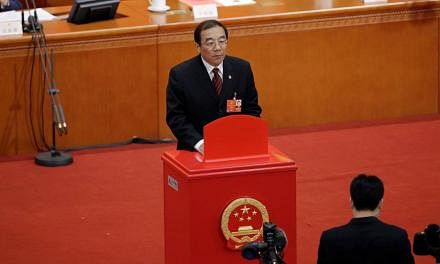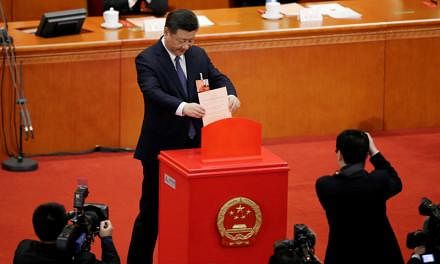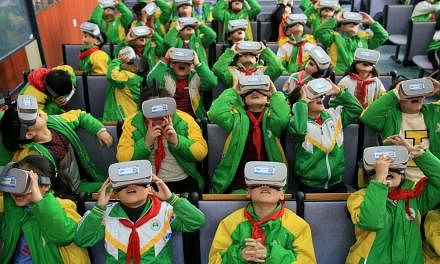BEIJING - The amendment to the Chinese Constitution to abolish term limits on the president has garnered an overwhelming 99.79 per cent of the vote, allowing President Xi Jinping to stay in office indefinitely.
This constitutional change together with several others were voted upon by delegates of the National People's Congress, China's Parliament, at the third plenary meeting of the ongoing annual session.
There were 2,964 votes of which 2,958 were for, two against, three abstentions and one blank vote.
Any less than this, said Hong Kong-based analyst Willy Lam, would have displeased Mr Xi greatly. "He would be unhappy if he got anything less than 98-99 per cent," he said.
Mr Xi had left nothing to chance in ensuring 100 per cent vote, or at least close to it, he added.
For example, said Dr Lam, the convenor of the Hong Kong NPC delegates had told the media ahead of the voting that all 36 of them would cast a "yes" vote.
The announcement of the abolishing of the two five-year term limit of the president came last month (Feb 25), together with several other amendments, had surprised many.
It received negative press in the West, with some observers calling it a power grab by Mr Xi and a step backward for Chinese political development.
Domestically, there were some voices of opposition, including from Mr Li Rui, 100, the former secretary of Mao, and veteran journalist Li Datong who warned that it planted the seed of chaos.
The term limit was written into the 1982 Constitution in the aftermath of the disastrous 1966-1976 Cultural Revolution in part to prevent the excesses of one-man rule of the Mao Zedong era.
Chinese official media had soon after the announcement defended the move, with the party-run Global Times saying it would improve the institution of leadership of the party and the state.
In the amendment proposal read out at the opening of the parliamentary session last Monday (March 5), the term limit removal was justified as being "unanimously" called for by the Chinese grassroots
At a press conference last week, Foreign Minister Wang Yi pointed out that head-of-state diplomacy "plays a pivotal role (in state-to-state interaction) and has irreplaceable strategic value" and that Mr Xi's "leadership style and charisma have earned him and his country many good friends among foreign leaders".
Mr Xi is expected to be voted to a second term as president at this NPC session, his last unless the term limit is abolished.
There are no term limits to general secretary of the Chinese Communist Party and chairman of the Central Military Commission - other positions Mr Xi holds which are more powerful than that of president.
Dr Lam said Mr Xi needs the head-of-state title in order to host and attend international events such as the G20, Apec and Brics summits.
Another important Constitutional change that was passed on Sunday (March 11) was one that wrote into the Constitution proper the CCP leadership "is the defining feature of socialism with Chinese characteristics".
It extends the influence of the CCP beyond its 90 million members to all 1.4 billion of the Chinese people, said Dr Lam. This is because as part of the amendment, the citizens of China are to profess allegiance to the CCP.
Several other changes include one that will allow the forming of an anti-graft super-agency and the inclusion of ecological advancement to the functions of the State Council or Cabinet.
President Xi's political theory Xi Jinping Thought on Socialism with Chinese Characteristics for a New Era is now also enshrined in China's Constitution. Both his predecessors Jiang Zemin and Hu Jintao saw their political theories added to the state Constitution only after leaving office.
Mr Hu Jintao's political thought on Scientific Outlook on Development was included in the country's Constitution only after the vote on Sunday.
